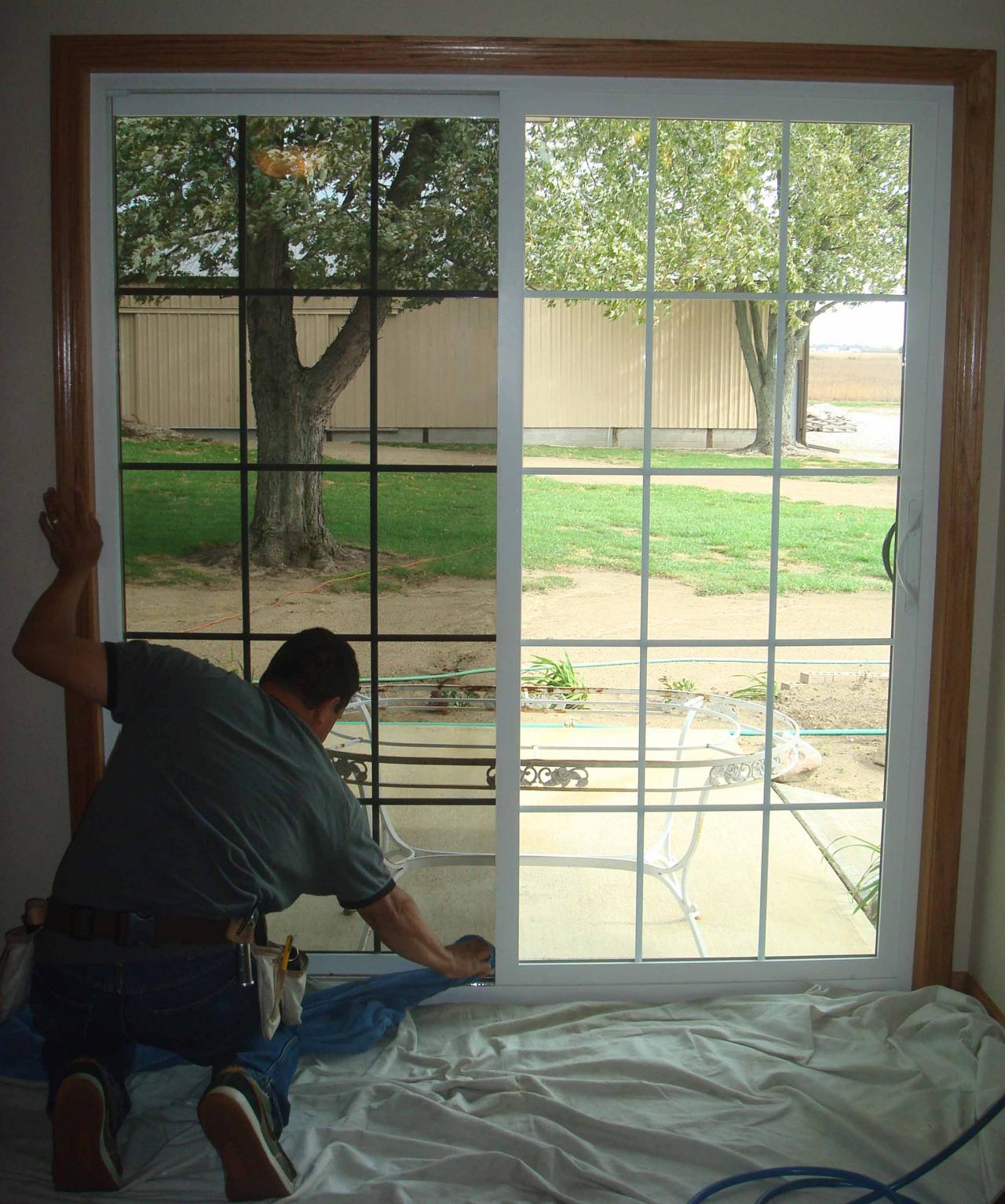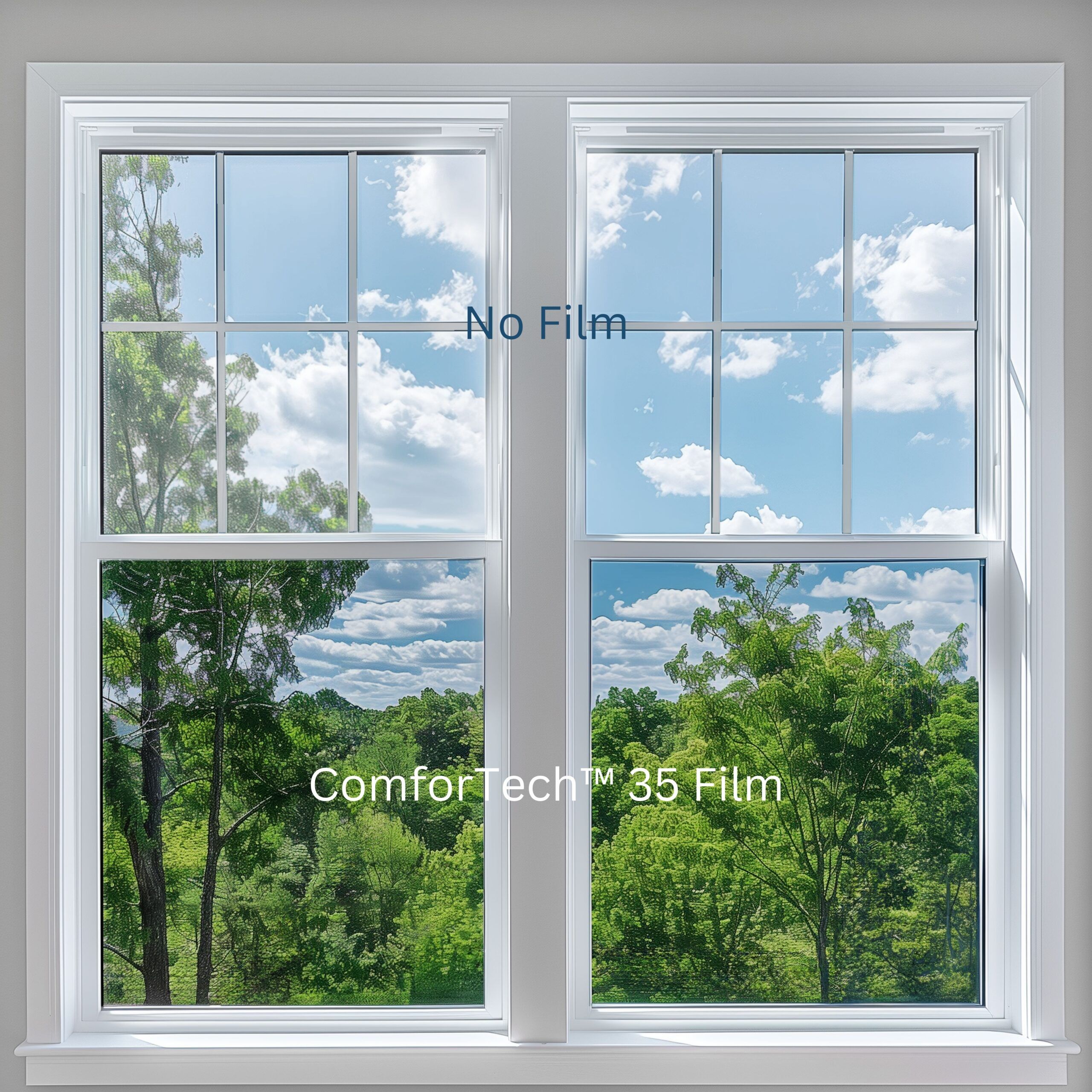Leading Residential Window Tint Installers Near You: High quality and Expertise
Leading Residential Window Tint Installers Near You: High quality and Expertise
Blog Article
Exactly How Residential Window Tinting Enhances Your Home's Energy Performance
Residential window tinting offers a compelling remedy for homeowners looking for to improve power effectiveness within their home. By applying specialized movies to home windows, it properly decreases warmth transfer, thus maintaining interior temperature levels and lessening the requirement for extreme heating or air conditioning. This not just curtails energy consumption yet likewise gives a more comfy setting by reducing glow. Understanding the subtleties of how tinting jobs and picking the proper type for your home can be critical. Oddly, what factors should one think about before making this financial investment?
Comprehending Window Tinting
Comprehending window tinting is necessary for homeowners looking for to boost both convenience and power effectiveness in their home. Residential Window Tint. Window tinting involves the application of a thin film to the interior or outside surface area of glass windows. This film can considerably modulate the amount of sunlight and warm that goes into a home, therefore influencing indoor environment problems
There are numerous kinds of home window tinting films readily available, each with unique residential properties. The efficiency of home window tinting is usually determined by its Visible Light Transmission (VLT) percentage, which shows how much light can pass via the film.
Advantages of Energy Efficiency
Window tinting not just improves aesthetic appeals but likewise plays a significant function in improving power efficiency within property spaces. By minimizing heat transfer with windows, tinted movies create a much more stable indoor environment, which can lead to substantial reductions in energy intake for heating & cooling. This energy performance translates right into reduced utility expenses, giving property owners with significant long-term cost savings.

Furthermore, window tinting boosts the convenience of living spaces. By reducing glow and blocking dangerous UV rays, tinted windows develop a more pleasant atmosphere, which can result in improved wellness for residents. The defense versus UV rays also assists preserve furniture and flooring from fading, adding to the longevity of home items.
Exactly How Tinting Works
Tinting movies operate via a combination of innovative materials and technologies created to control the quantity of solar energy going into a home. Primarily made up of polyester, these movies commonly incorporate ceramic or metal bits that soak up and reflect warm. This twin capability permits them to significantly minimize the infiltration of ultraviolet (UV) rays and infrared radiation while permitting noticeable light to pass through.
The efficiency of home window tinting is measured by its solar heat gain coefficient (SHGC), which suggests just how much solar energy is transferred via the home window. Reduced SHGC values are more suitable as they signify better warm being rejected. In addition, window tints a fantastic read can feature a range of shades, allowing house owners to customize their aesthetic preferences while boosting power effectiveness.
In addition, these films function as a barrier, preventing warmth loss throughout chillier months by reflecting indoor warmth back into the home. This thermal insulation impact complements the air conditioning advantages acquired throughout warmer months, adding to a balanced interior environment year-round. By managing solar power efficiently, household window tinting not just improves comfort however likewise plays an important function in reducing power consumption and decreasing utility costs.
Choosing the Right Color

There are various types of home window movies available, including dyed, metalized, and ceramic. Ceramic films supply superb heat control without compromising exposure and are very sturdy, making them a popular choice.
Visible light transmission (VLT) is one more critical variable, as it shows the amount of all-natural light that can go through the tinted glass. Home owners should select a tint with a VLT that complements their lighting preferences while still offering appropriate glow reduction.
Furthermore, examining the solar warm gain coefficient (SHGC) can assist figure out exactly how well a color can block warm from sunlight. A lower SHGC indicates far better warmth control, inevitably boosting power efficiency.
Setup and Maintenance Tips
Proper installment and maintenance are important components in making the most of the advantages of property window tinting. To achieve optimum results, it is advisable to work with a qualified professional for installment. This guarantees that the tint is used correctly, staying clear of air bubbles, why not look here wrinkles, or imbalance that might compromise efficiency. Professionals additionally utilize specialized tools and methods, which can enhance the longevity and efficiency of the color.
Adhering to installation, maintenance is vital to prolong the life of the window film. It is recommended to wait a minimum of 1 month prior to cleaning the colored home windows to permit the adhesive to treat totally. When cleaning, utilize a soft towel and a mild, ammonia-free cleaner to avoid damaging the movie. Stay clear of abrasive materials that might damage the surface area.
Additionally, regular evaluations are helpful. Look for any kind of peeling or bubbling, which can indicate improper installation or put on in time - Residential Window Tint. Attending to these problems without delay can protect against additional damages and maintain power efficiency. By sticking to these installation and maintenance pointers, house owners can ensure their window tinting continues to offer significant energy savings and comfort for years to find.
Final Thought
In final thought, residential window tinting offers as an effective service for boosting energy effectiveness within homes. By minimizing heat transfer and obstructing hazardous UV rays, home window movies contribute to decrease power intake and improved interior convenience.
Window tinting includes the application of a thin film to the inside or exterior surface of glass home windows. By lowering heat transfer with home windows, colored films produce an extra stable indoor environment, which can lead to substantial reductions in energy usage for heating and air conditioning.The performance of home window tinting is measured by its solar heat gain coefficient (SHGC), which indicates just how much solar power is transmitted through the window. By handling solar power efficiently, property home window tinting not just boosts comfort but also plays an essential role in reducing energy consumption and lowering utility great post to read expenses.
By minimizing warmth transfer and obstructing harmful UV rays, window films contribute to lower energy consumption and improved indoor comfort.
Report this page